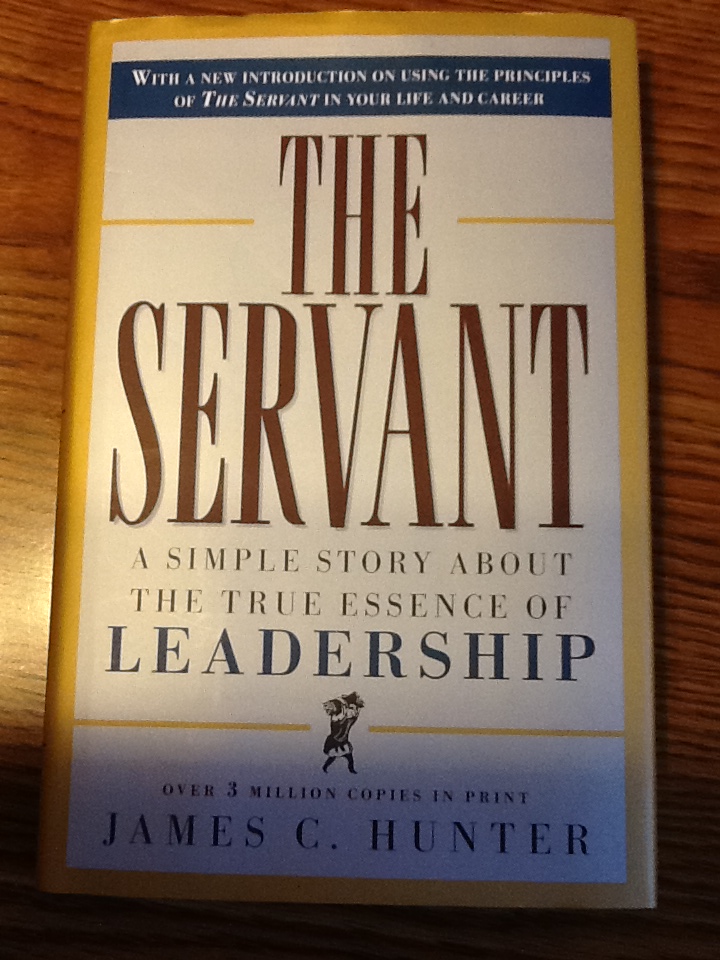
“Everyone is a leader because everyone influences other people every day.”
James C. Hunter
Have you ever stopped to consider the awesome responsibility you have as a leader? How much effort do you put into mastering this role? If you are simply going through the motions or doing what’s always been done, James Hunter’s classic, The Servant, will surely have you reevaluating your leadership approach.
Although normally not a fan of “business parables” (with a few rare exceptions, like The Dream Manager by Matthew Kelly), I recently picked up The Servant after learning that John Wooden, a leader and coach I’ve admired for years, supposedly gave many copies to his players and colleagues. The story focuses on a businessman, John, whose life has begun spinning in a downward spiral, putting all his leadership roles – executive, husband, father, and beyond – in jeopardy. He reluctantly agrees to attend a week-long leadership retreat at a nearby monastery.
Through this experience, John learns that his “I Know Best” leadership style might be contributing to his struggle. Servant leadership – characterized by patience, love, humility, and the like – seems a foreign concept to him but one that opens his eyes to a whole new way of leading and living. The book follows his, and several other participants’, transformation over the course of their enlightening week together.
Servant leadership is certainly not a new concept, however its popularity in the business world is fairly recent. As Hunter writes in the introduction, “When I did an Amazon.com search for ‘servant leadership’ in 1998, there were eight titles listed, the majority of those out of print. That number is now 4,600.” I conducted a similar search while writing this post and found over 6,500 titles, a number that I’m sure will continue to rise.
Hunter offers countless takeaways in this easy-to-read story. Three in particular stand out that, when implemented, can revolutionize your leadership experience:
 1. Trust is not optional.
1. Trust is not optional.
You cannot be a visionary leader without first establishing a basis of trust. “Trust is the glue that holds relationships together,” Hunter asserts. “If you aren’t quite sure about this principle, then ask yourself this question: How many good relationships do you have with people you do not trust?” Honesty, integrity, doing what you say you will do – all of these serve to build trust. Start here.
2. Your behaviors make the difference.
“People talk a lot alike,” Hunter writes, “but it’s often only lip service. It’s only in their actions that the differences show up.” Servant leadership is rooted in love, a topic that makes some leaders uncomfortable outside of their family roles. The essence of love, however, changes your actions and behaviors. Several times throughout the book, Hunter reminds us that we cannot always control how we feel about other people, but we can certainly control how we behave towards them. Respect, dignity, and a service mindset set the stage for powerful leadership.
3. Successful leadership requires commitment.
One of the tests of a leader – and remember, we are all leaders – is maintaining our vision and strength in challenging times, when leading difficult people, or when we feel like we’re moving backwards. The key? Commitment. Hunter describes this beautifully with The Law of the Harvest:
Many people want and expect fast results but the fruit only comes when it is ready. Imagine a farmer who tries to ‘cram for finals’ by planting his crop in late autumn hoping to get a harvest before the snow flies! The Law of the Harvest teaches that the fruit will grow, but we do not always know when the growth will occur.
We must be committed wholeheartedly to our vision, and our people, if we are to fulfill our purpose as leader.
While the book offers examples and stories to illustrate various principles of servant leadership in action, it raises some questions, too. For example, as evidenced by its name, servant leadership is about serving. Many of the leaders who come to me for coaching, however, have become depleted due to giving too much. Although Hunter suggests multiple times that the servant leader gives people what they need versus what they want, readers will also benefit from engaging in thoughtful discussion on the importance of setting boundaries. Without boundaries, over-giving can lead to resentment, ineffectiveness, and, if left unchecked, physical and emotional health issues.
I agree with Hunter 100% when he writes, “The role of the leader is a very high calling.” And remember: whether you lead a corporation, team, troop, department, or family, you are a leader. The Servant offers terrific insights for going beyond average to truly fulfill a meaningful, purposeful leadership role.
Indeed, the final test of leadership is: Do you leave things better than you found them? Will people be glad you were there?
Have you worked with someone you would describe as a servant leader? What was that experience like? Share your thoughts below, on our Facebook page, or via Twitter.
 Dr. Christi Hegstad helps you successfully do what you love! As a Certified Executive and Leadership Coach and the President of MAP Professional Development Inc., she coaches executives and leaders who feel stuck – whether in their leadership abilities, at a certain income level, or “spinning their wheels” in the day-to-day – to flourish towards a purposeful vision with clarity, confidence, and meaningful action.
Dr. Christi Hegstad helps you successfully do what you love! As a Certified Executive and Leadership Coach and the President of MAP Professional Development Inc., she coaches executives and leaders who feel stuck – whether in their leadership abilities, at a certain income level, or “spinning their wheels” in the day-to-day – to flourish towards a purposeful vision with clarity, confidence, and meaningful action.
Receive helpful articles, resources, and 5 audios – for free! Click “Join Our Mailing List” above.
Learn more at www.meaning-and-purpose.com, on Facebook, and via Twitter.





